Volkswagen Ends US Passat Production To Focus On SUVs
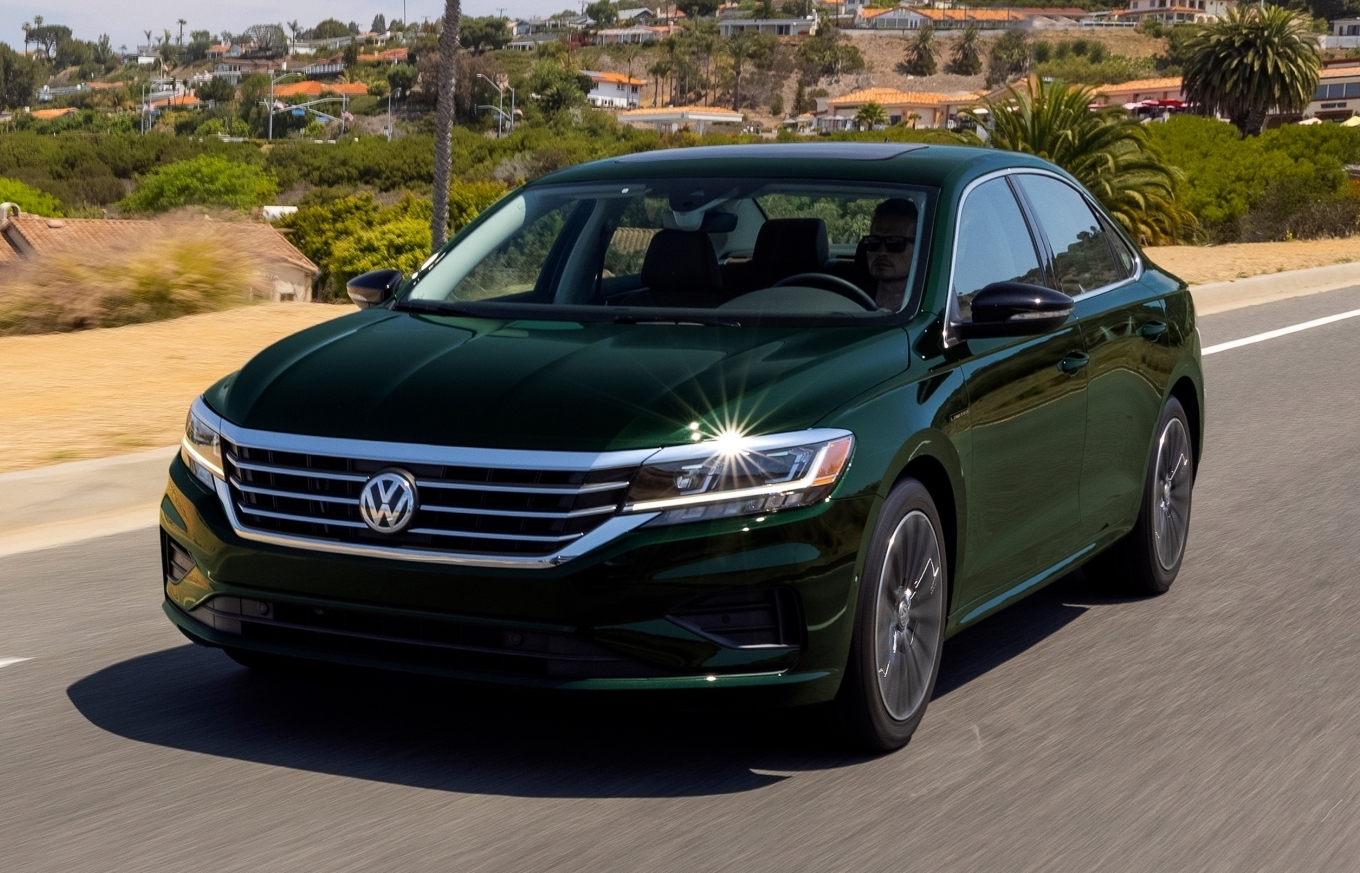
This is not before Volkswagen announces a final Limited Edition variant of the Passat however.
While the Volkswagen sedans remains relatively popular over in China, its fate in the wider world though is perhaps less than rosy. This is especially true in the United States, as the German auto giant has recently announced that it will soon end the domestic production of the North American-spec Passat at its Chattanooga plant.
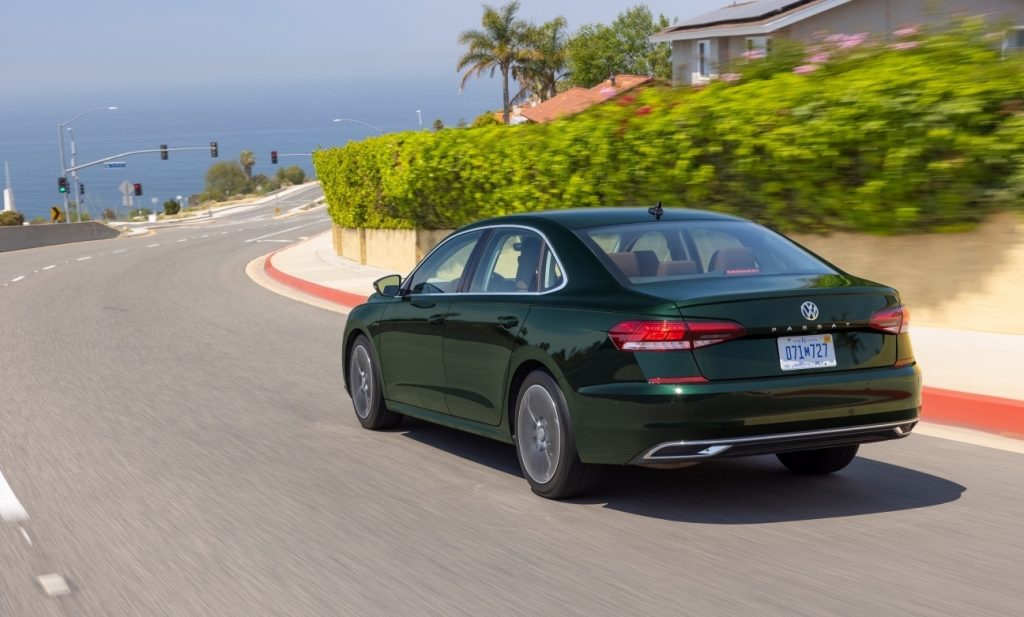
A move that will see Volkswagen transition towards manufacturing even more SUVs over there, Passat production in Tennessee is nevertheless set to go out in style. This is because VW has marked this occasion with a short-run of Limited Edition variants, featuring what the automaker claims to be various ‘Chattanooga-inspired details’.
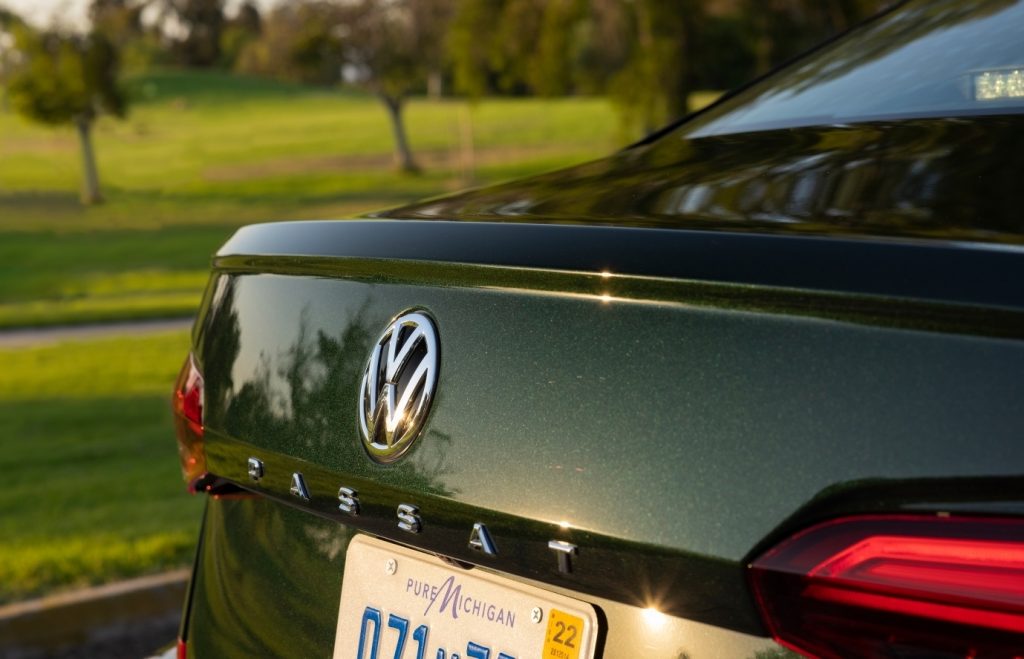
Before delving into what is so special about these send-off Passats however, it is just worth touching upon the important fact that this large VW sedan was the first car to be built at its Chattanooga plant. Hence the reason why this particular model holds an especially special significance to the brand over in North America.
It is worth highlighting too that the these North American-spec Passats are actually quite different to its similar-looking sibling is sold in Europe and over here, with the former being larger and actually less technologically advanced than the latter. So there might still be some life left in the Euro-spec large VW sedan for a few more years to come, before the automaker eventually transitions towards its eventual electrification endeavours.
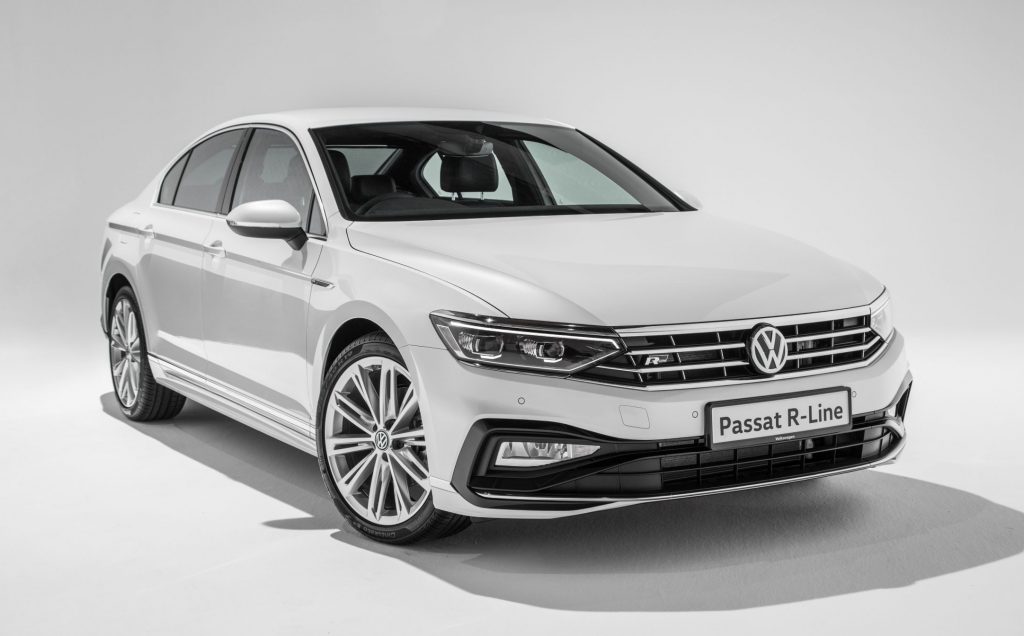
Getting back to these Passat Limited Editions meanwhile, the headline story with these cars would be how the production numbers and colour choices correspond to significant events in this large sedan’s history. Starting with the overall production number first, the 1,973 units of these send-off models produced is meant to signify the year that the first-generation Passat made its debut in Germany.
Now of the 1,973 cars, 411 of them will be painted in Aurora Red Metallic with a Titan Black interior that pays tribute to the original 411 Passat internal production code used by VW at the time. 423 units on the other hand will come in Racing Green Metallic with a Mauro Brown cabin, where 423 represents the area code of Chattanooga.
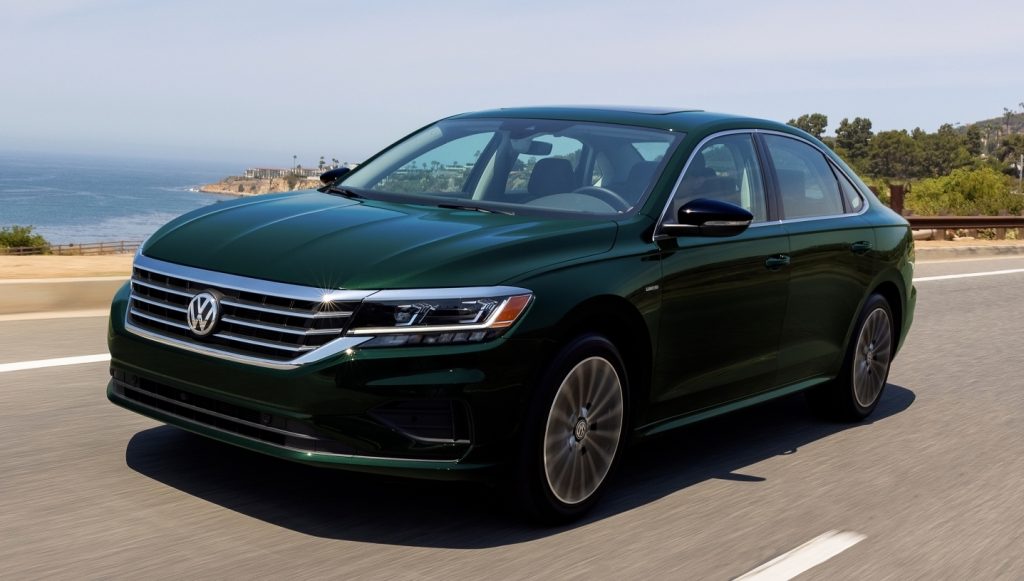
Another 524 Limited Editions will feature a Pure White exterior hue and a Mauro Brown interior, with 524 signifying the opening date of the Chattanooga Plant on May 24, 2011. And just as if anyone thought that VW wasn’t already clutching at straws to make all these numbers work, the last 615 cars that come finished in Platinum Grey Metallic with a Titan Black interior symbolises ‘the six generations of imported Passats, one generation assembled in Chattanooga, and five decades of U.S. sales’.
In addition to these numerology-based colour combinations, Volkswagen has also naturally thrown in some other goodies to these send-off Passats. On the outside therefore, these Limited Edition sedans net custom fifteen-spoke 18-inch aluminium alloy wheels and black-painted electrically folding side mirrors.
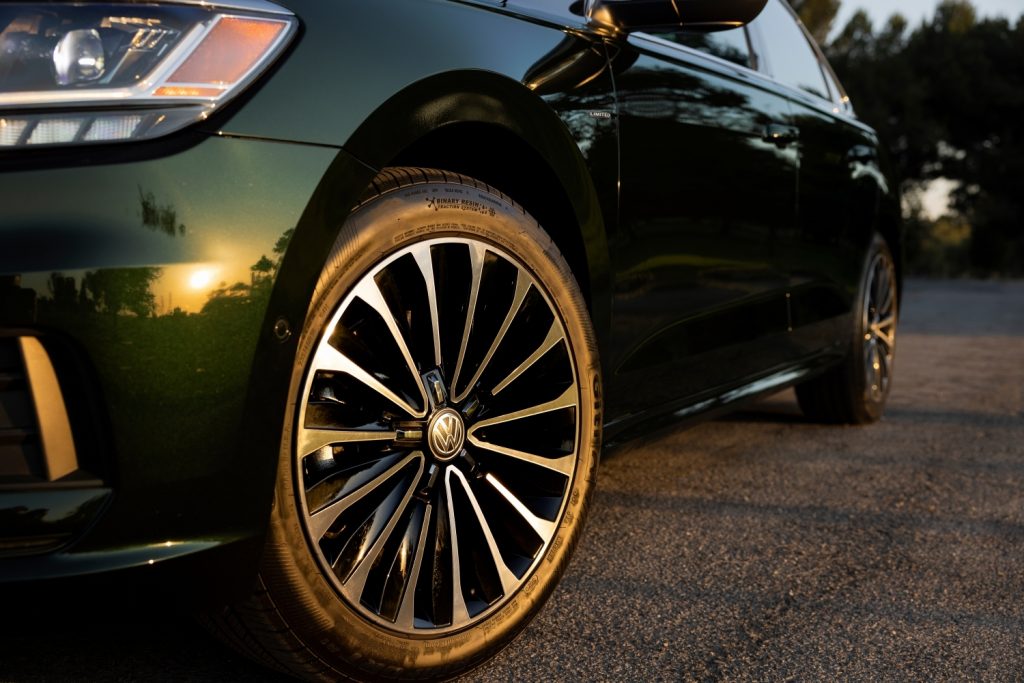
Moving on inside meanwhile, the Limited Edition Passats distinguishes itself from its normal counterparts by way of unique seat tags featuring ‘1 of 1973’ on one side and ‘VW Chattanooga Since 2011’ on the other. A special rubber mat adorns the cupholders too, featuring aerial maps of the city and an aerial line drawing of the Chattanooga factory.
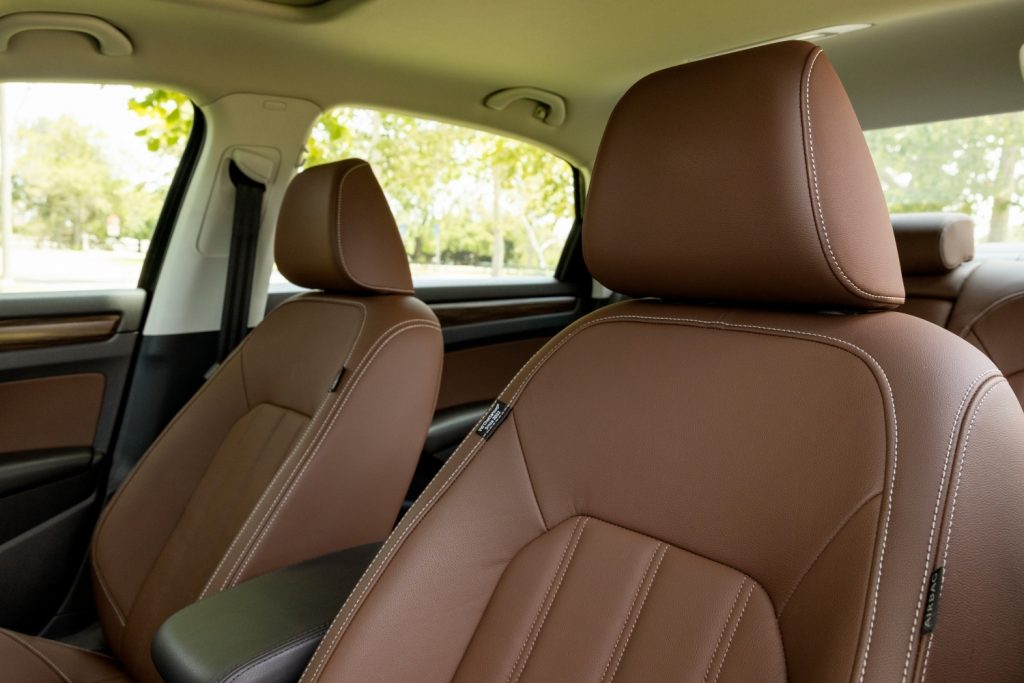
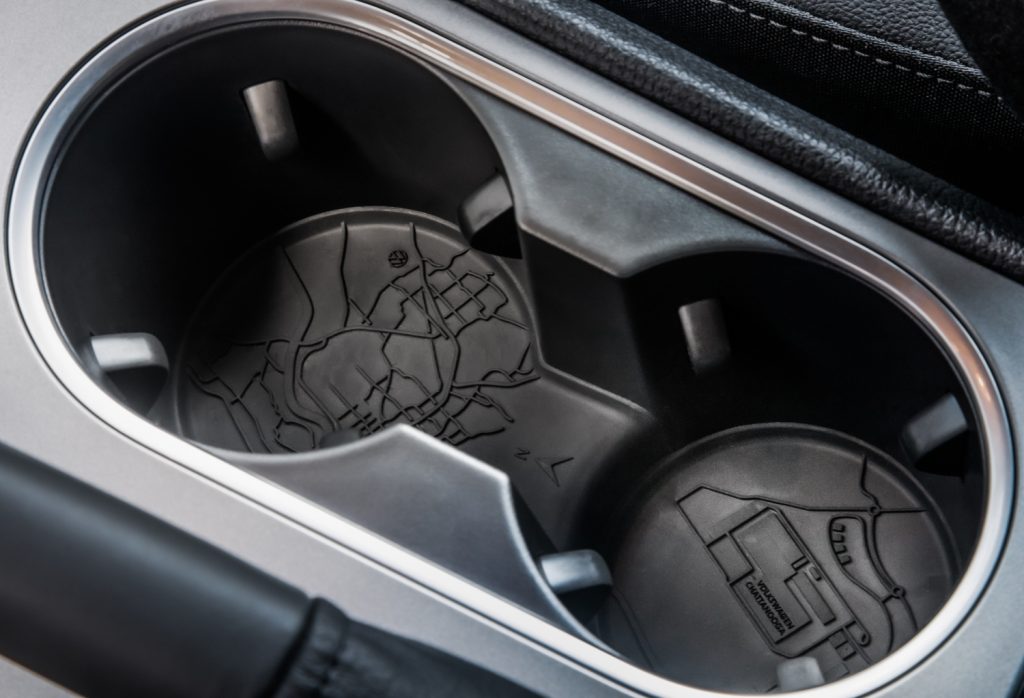
Just to round off whats’ listed on the spec sheet, the Limited Edition Passats will also be equipped with comfort sport seats with perforated Vienna leather upholstery, heated front and rear seats, Discover Media infotainment system, Fender Premium Audio, Park Assist with front and rear Park Distance Control. LED headlights with the Advanced Front-lighting System (AFS) and an Easy Open boot lid are also standard on these send-off models.
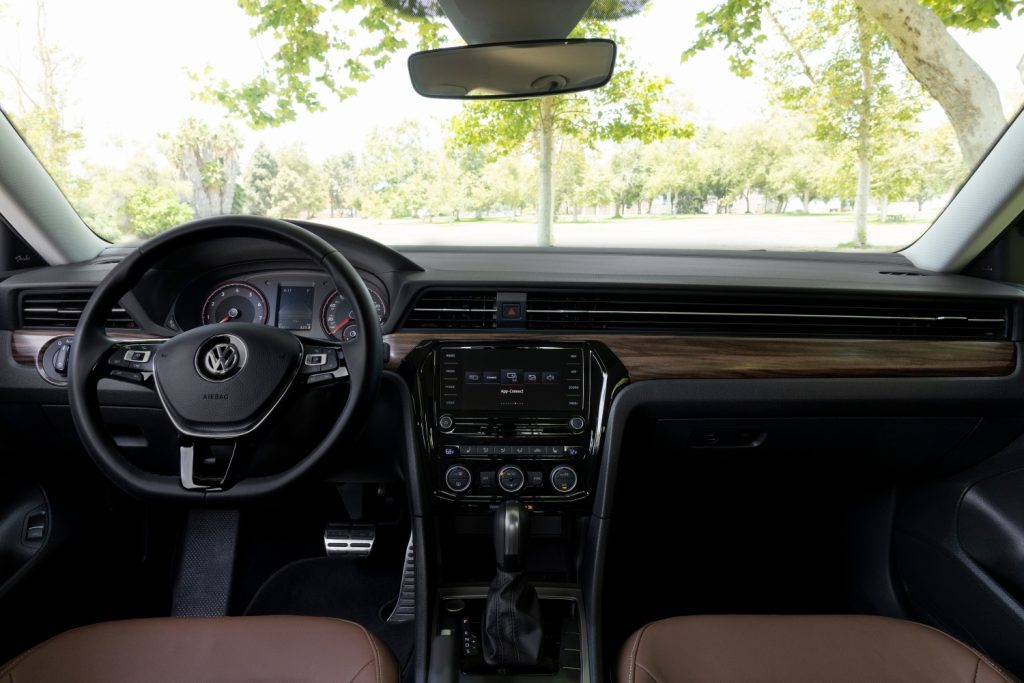
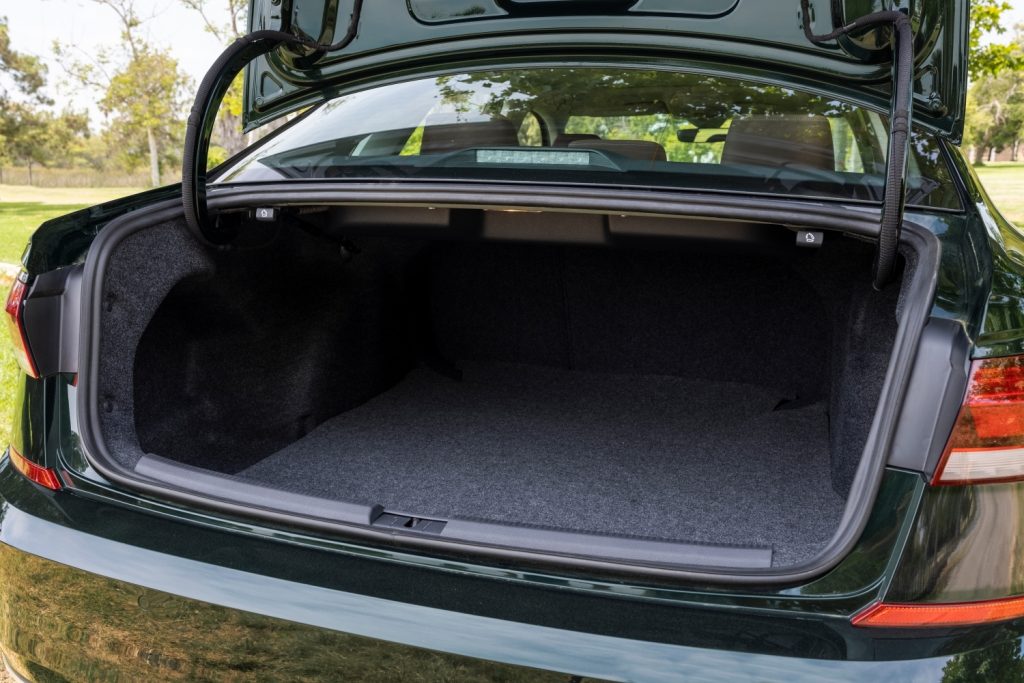
The Passat Limited Edition starts from $30,295 (RM 128,000) over in the United States, with the optional Aurora Red Metallic hue tacking on an extra $395 (RM 1,700) to the sticker price. As mentioned prior, there will be no chance of seeing one of these here. Though these US-spec VW sedans were actually sold in Canada, South Korea and the Middle East too.
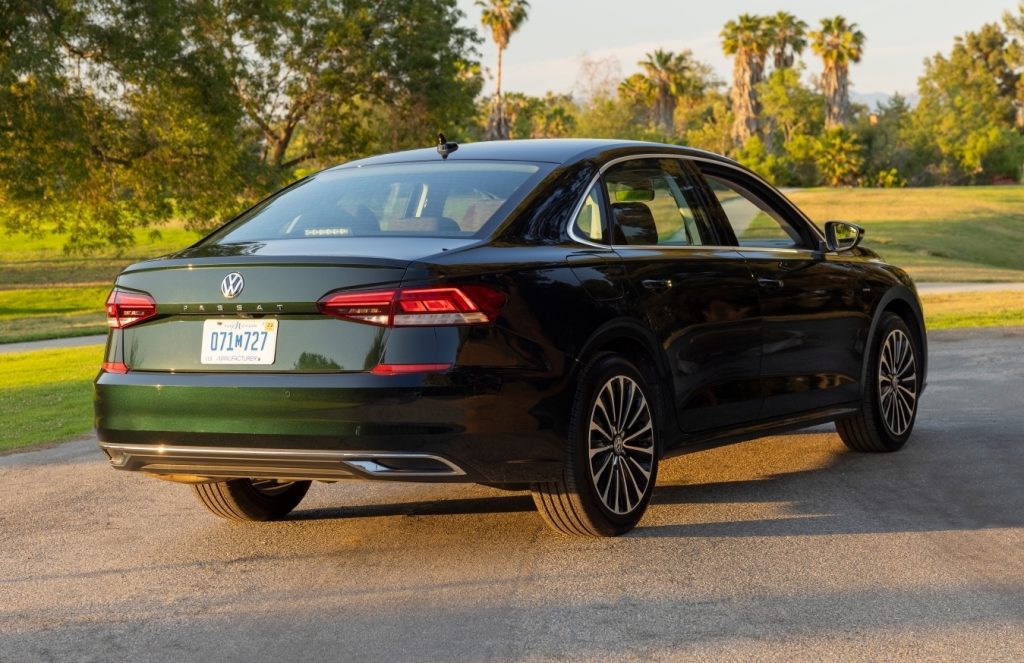
PRESS RELEASE: After a decade of success with American sedan buyers, Volkswagen of America, Inc. announced today that it will end assembly of the Passat sedan in Chattanooga with model year 2022, part of the plant’s transformation to build future electric vehicles. To celebrate the integral role of the Passat in the resurgence of Volkswagen in the United States, a short-run Limited Edition will join the lineup with Chattanooga-inspired details.
“We’ve sold some version of the Passat for nearly 50 years, and the Passat launched our relationship with Chattanooga, which supports thousands of jobs,” said Scott Keogh, President and CEO, Volkswagen Group of America, Inc. “With the Atlas and Atlas Cross Sport in high demand, and the North American production launch of the all-electric ID.4 SUV next year, our future in Chattanooga looks brighter than ever.”
The 2022 Passat Limited Edition includes unique exterior and interior design details created to celebrate the model’s history and recognize the contributions of the employees who built Passat. A run of 1,973 Limited Edition models are expected to be produced to recognize the year the first Passat was launched in Germany.
The Passat Limited Edition will be available in four unique color combinations, with the number of each paying homage to an aspect of the vehicle’s past. Aurora Red Metallic models with Titan Black interior will number 411 units, representing the original vehicle production code. Racing Green Metallic models with Mauro Brown interior will be number 423, for the Chattanooga, TN area code, and Pure White models with Mauro Brown interior will number 524 units, signifying the opening date of the Chattanooga Plant on May 24, 2011. To round out the limited run, 615 Platinum Grey Metallic models with Titan Black interior will be produced—signifying six generations of imported Passats, one generation assembled in Chattanooga, and five decades of U.S. sales.
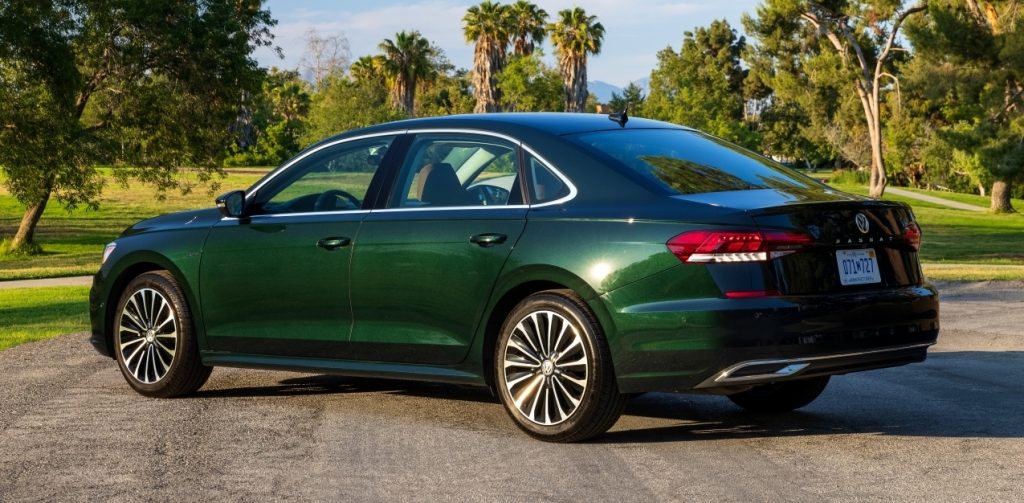
Outside, distinctive wheels and mirror caps differentiate the Limited Edition from the rest of the Passat lineup. Fifteen-spoke 18-inch aluminum alloy wheels are standard, along with black mirror caps for the power-folding mirrors with memory. Additionally, Limited Edition models feature LED headlights with the Advanced Front-lighting System (AFS) and Easy Open trunk.
Inside, Limited Edition models will bear unique seat tags featuring “1 of 1973” on one side and “Chattanooga 2011” on the other. A special mat adorns the cupholders, featuring aerial maps of the city and an aerial line drawing of the Chattanooga factory. Additionally, Limited Edition models will be equipped with comfort sport seats with perforated Vienna leather seating surfaces, driver seat memory, power passenger seat, heated front and rear seats, Discover Media infotainment with navigation, Fender® Premium Audio, Park Assist with front and rear Park Distance Control and Light Assist (High Beam Control for Headlights).
Pricing for the 2022 Passat Limited Edition starts at $30,295 MSRP with a destination cost of $995. The Aurora Red Metallic exterior color option is an additional $395.
The first versions of the Passat family sedans and wagons from Volkswagen for U.S. customers were launched in 1974 under the Dasher name. More than 222,000 were sold before the car was replaced by the second-generation Passat, this time marketed as the Quantum. The Passat name appeared for the first time in the U.S. market in 1990 and has remained ever since. The first six generations were exported from Europe.
In 2011, Volkswagen started assembling the Passat for the North American market out of its advanced assembly plant in Chattanooga. Specifically designed for North America, the 2012 Passat was bigger than the car it replaced, with ample rear-seat and trunk space, offering German engineering and styling at a competitive price. The U.S.-assembled Passat has been exported around the world—to Canada, South Korea and Middle Eastern markets—ever since.
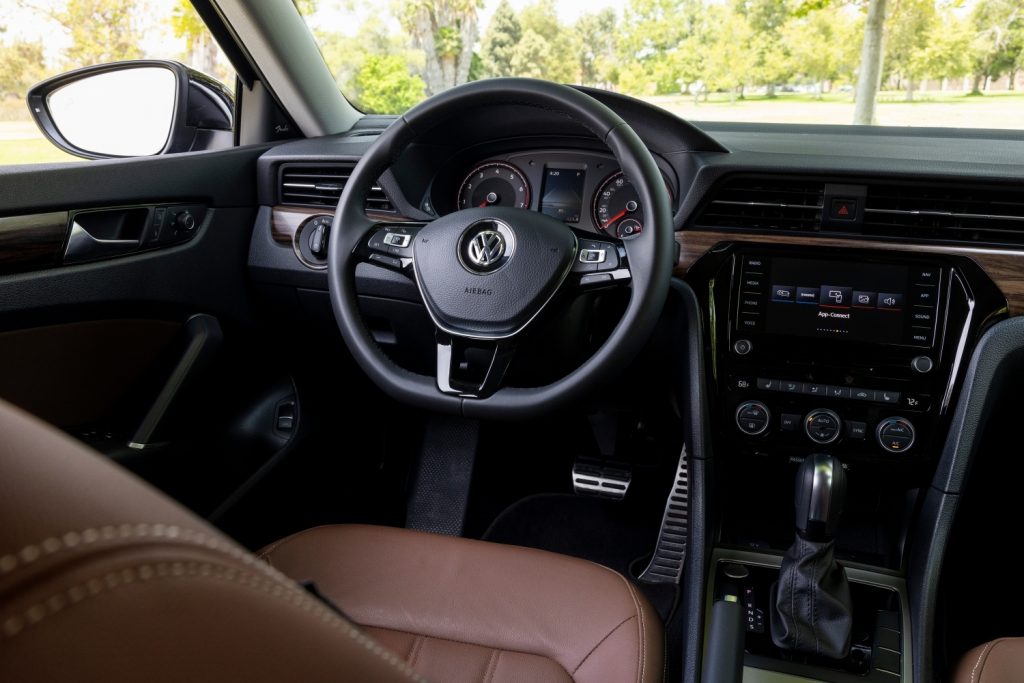

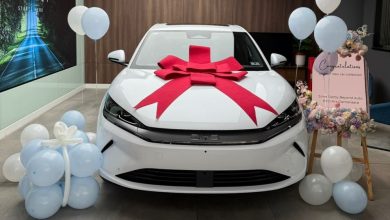
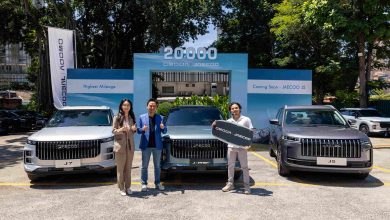


One Comment